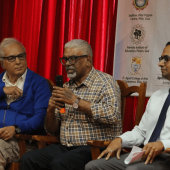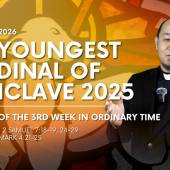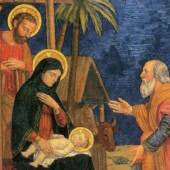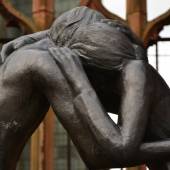Humility is a great virtue
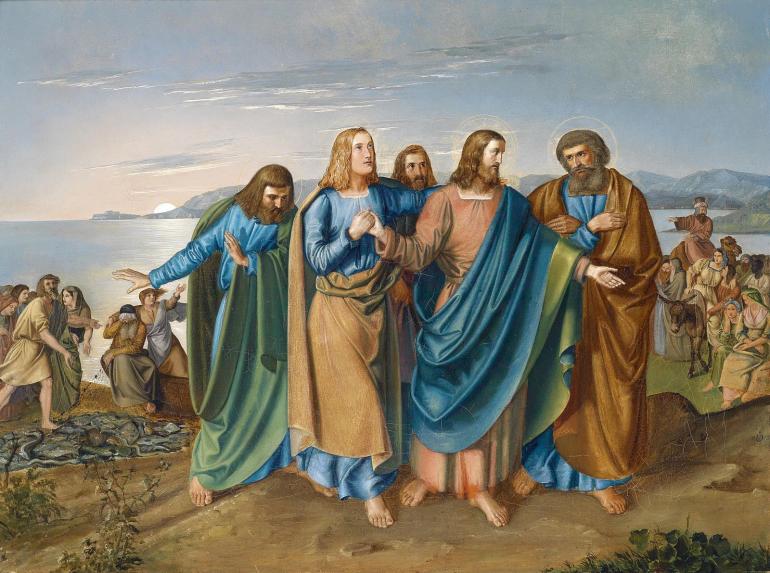
July 9, Sunday of the Fourteenth Week in Ordinary Time
Sunday Readings: 1st Reading: Zechariah 9:9–10; Second reading: Romans 8:9, 11–13; Gospel: Matthew 11:25–30
Humility is a great virtue. The meaning of humility is paradoxical. It is the solid foundation of all virtues. It is not thinking less of oneself, but thinking of oneself less. In reality, it means nothing other than complete honesty about oneself. When God took human flesh in the mystery of incarnation and lived a human life, He practiced humility. When he allowed himself to be stripped, mocked, and accused like a criminal, he lived humility to the fullest.
Humus is the Latin word from which words such as human and humility stem. It means dust, soil, or ground. By engaging in this virtue, I am willing to hide my identity from people to receive God's raising. St. Paul presents Jesus as the supreme example of humility in Philippians 2:6–11. Expressions such as he “did not regard equality with God,” “emptied himself,” “taking the form of a slave,” “being born in human likeness,” and “he humbled himself” speak volumes of Jesus’ humility. It is not a sign of weakness, but rather the virtue of the strong and highly spiritual.
The First Reading from Prophet Zechariah describes a powerful King who is to come in the context of the restoration of Jerusalem when God decides to judge Israel’s enemies. God comes down as a King and mighty Warrior. He is the just and humble Saviour, and yet He will be poor and ride upon an ass and a colt. He will speak the language of peace to the Gentiles.
Despite possessing unlimited power over the universe, He does not ride on a horse. It is a symbol of pomp and is usually used in wars and invasions. Instead, He rides on a donkey because it signals the peaceful intent of the rider (cf. Exod 14:9; Zech 1:7–11).
This paradoxical self-presentation of God challenges human kings and people in authority to be humble, mindful of their limitations, and always remember that it is God, or the Divine Warrior, who saves.
The Responsorial Psalm is a Psalm of Praise. It extols, praises, and blesses the Lord God. It highlights God’s royal power and royal status, which extend far and wide. The author addresses God as King and Lord, who has enormous power and authority over the earth. His Kingdom is supposed to last for eternity.
Thus, it is an obvious bridge between the First Reading and the Gospel. The Psalmist’s sentiments link the ‘humble’ Warrior-King of Zechariah’s verses with the ‘meek and gentle’ Jesus of Matthew. All the possible attributes of God such as gracious, merciful, patient, plenteous in mercy, and sweet, are in the mouth of the Psalmist. God’s mercy is called tender. The author hails the Lord for being “faithful in all his words” and “holy in all his works”. What an inspiration to live our Christian commitment with fidelity.
The Second Reading from the Letter to the Romans reminds the Christians in Rome about the conflict between the Spirit and the flesh. The people possessed by the Spirit of God lead a life contrary to those who live according to the flesh. All the baptized are in the spirit and not in the flesh.
Flesh connotes a natural, concretely material human existence. Paul connects flesh with slavery and death. Unfortunately, the flesh is hostile toward God. It does not submit to the law of God. Those who are in the flesh cannot please God. On the other hand, spirit denotes freedom and suggests things of God and heaven. Human beings are caught in the middle of a battle that never ends. When we abandon ourselves to the realms of flesh, we sin, while when we commit ourselves to the values of Jesus, we begin to grow in spirituality.
In the Gospel Reading from St. Matthew, Jesus confesses, praises, and blesses God, the Father, Lord of heaven and earth, for hiding great truths from the wise and prudent and revealing them to the little ones.
The little ones over here could denote the humble and simple ones who depend on God. That is why Matthean Jesus repeatedly says, “Take care that you do not despise one of these little ones; for, I tell you, in heaven their angels continually see the face of my Father in heaven” (Matt 18:10). “So it is not the will of your Father in heaven that one of these little ones should be lost” (Matt 18:14). “Let the little children come to me and do not stop them; for it is to such as these that the kingdom of heaven belongs” (Matt 19:14).
These scriptural texts not only encourage us to become little ones in the sight of God but also inspire us to take care of the little ones who are under our care.
Radio Veritas Asia (RVA), a media platform of the Catholic Church, aims to share Christ. RVA started in 1969 as a continental Catholic radio station to serve Asian countries in their respective local language, thus earning the tag “the Voice of Asian Christianity.” Responding to the emerging context, RVA embraced media platforms to connect with the global Asian audience via its 21 language websites and various social media platforms.









